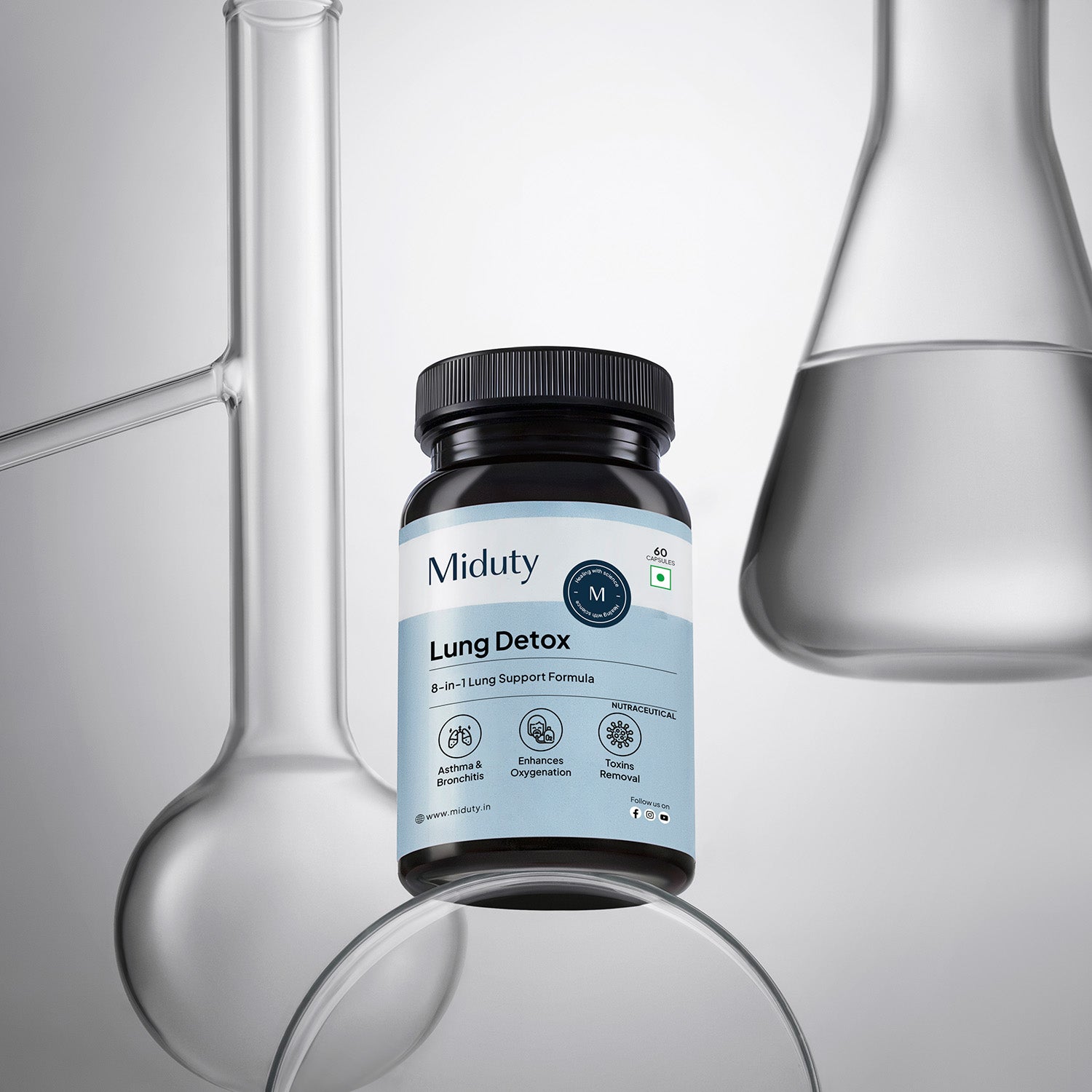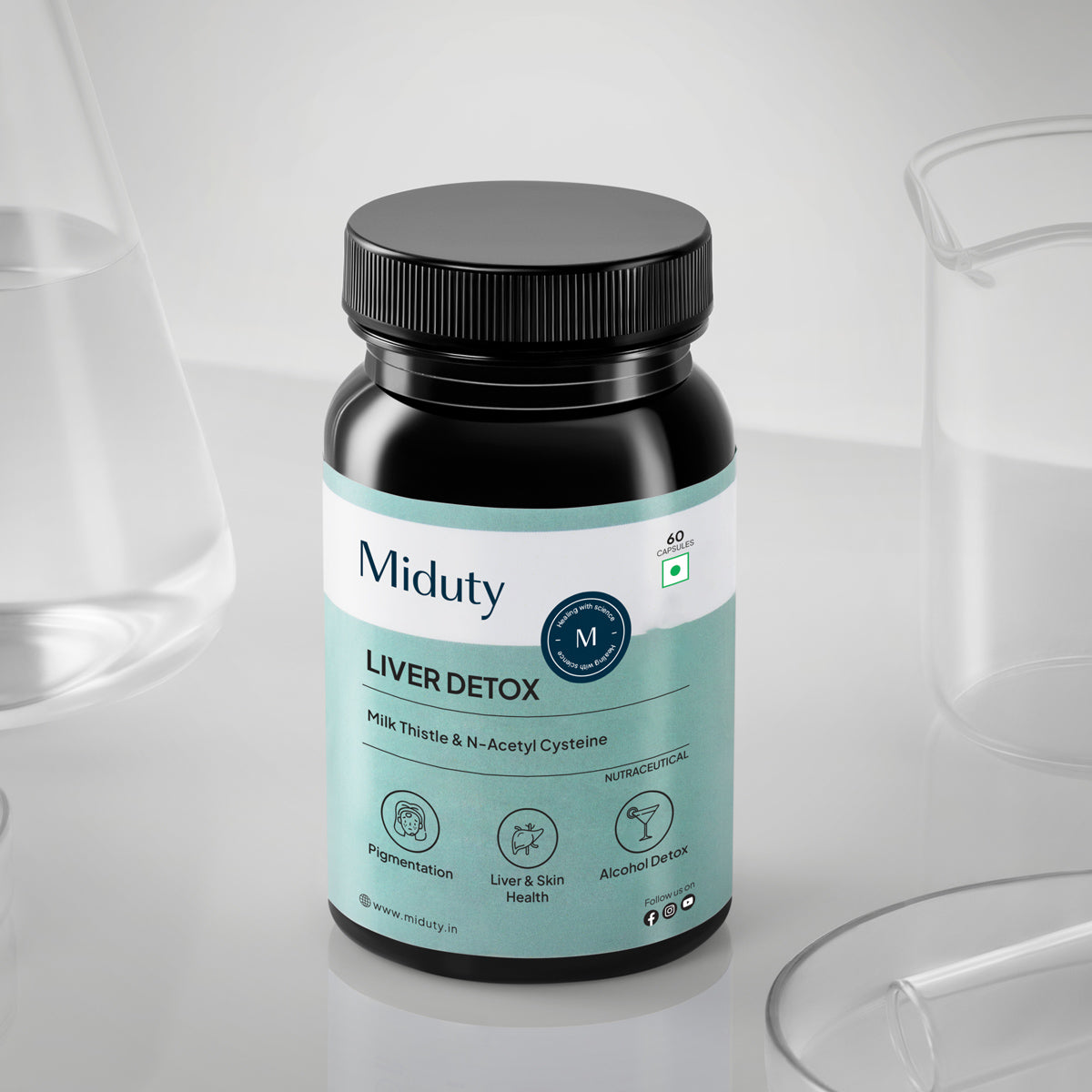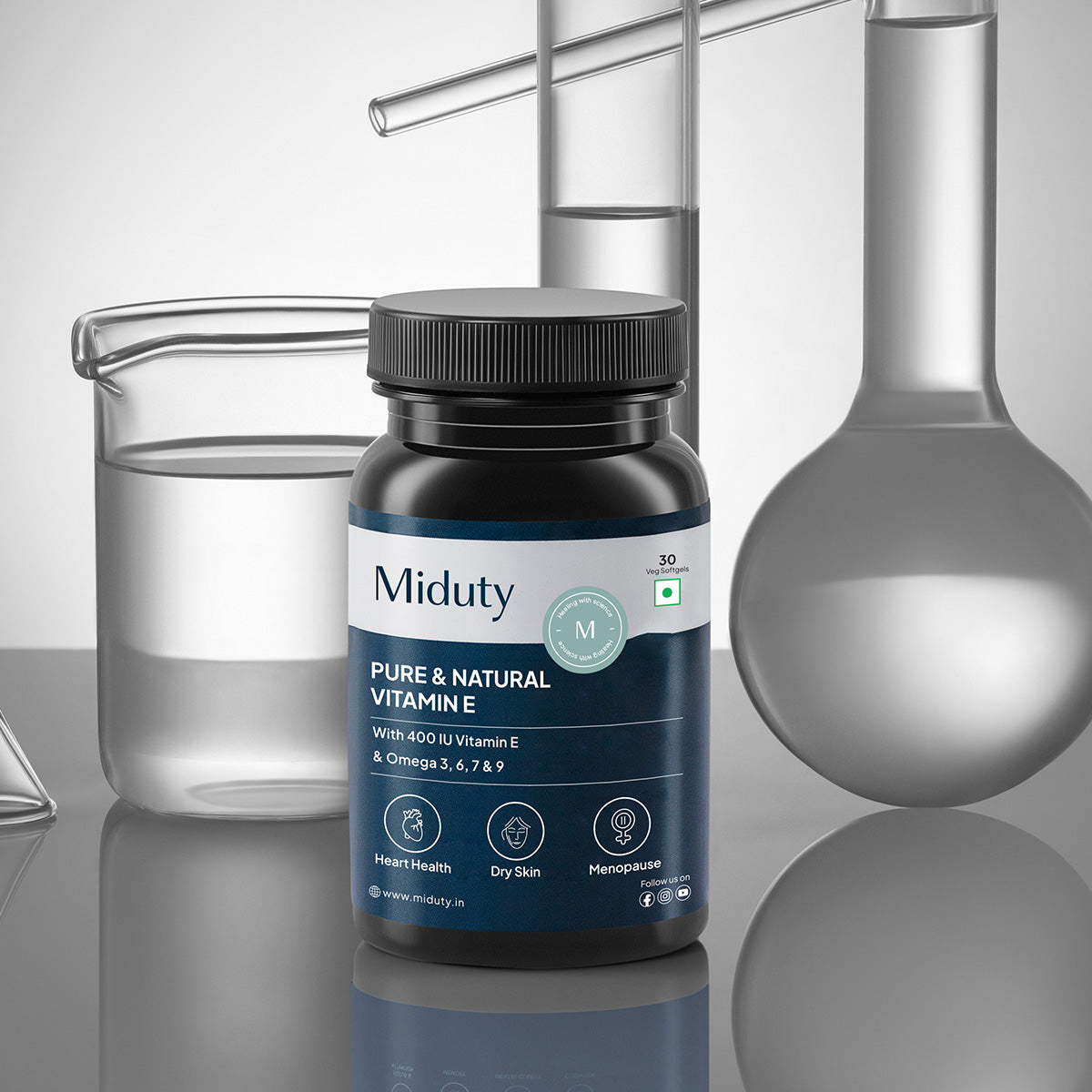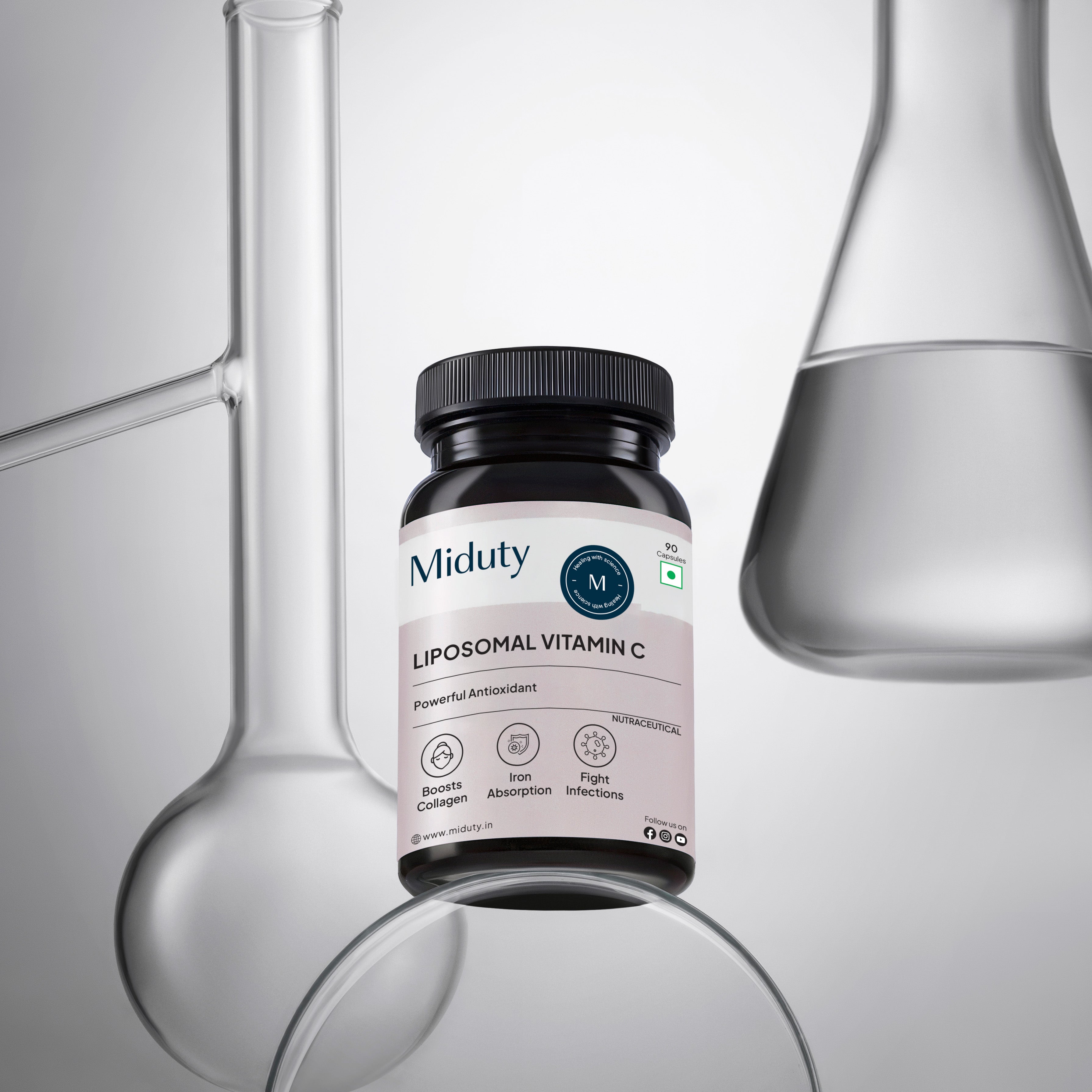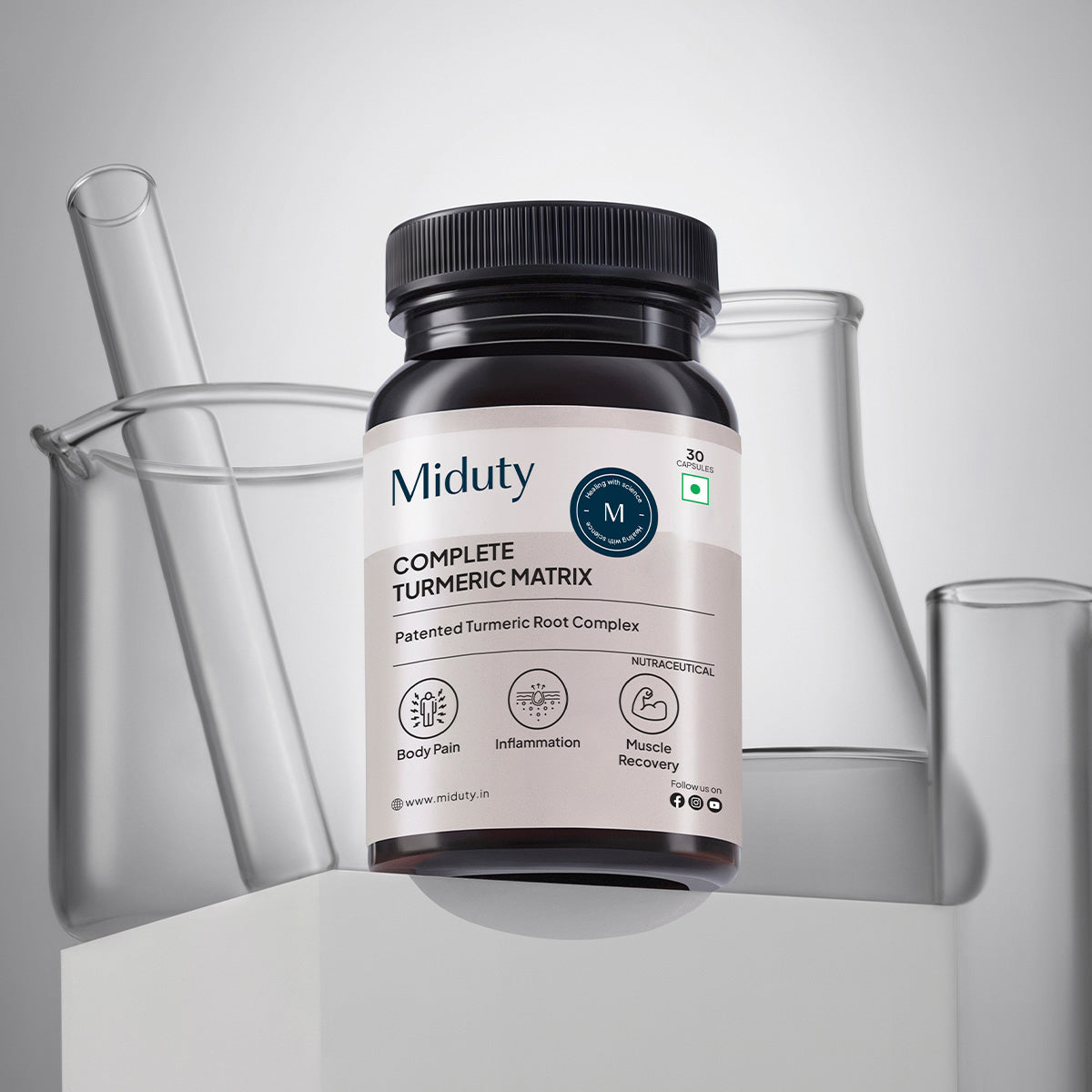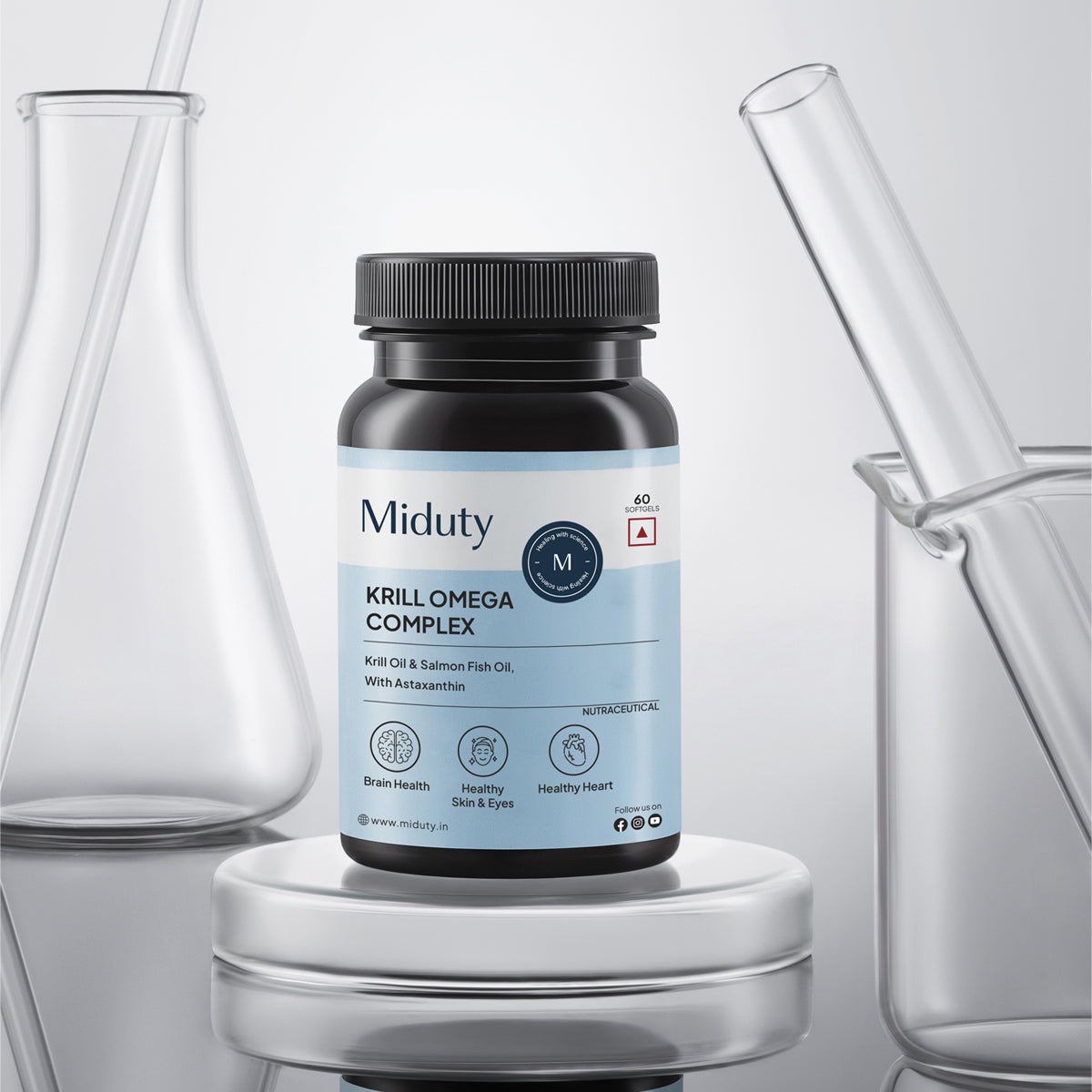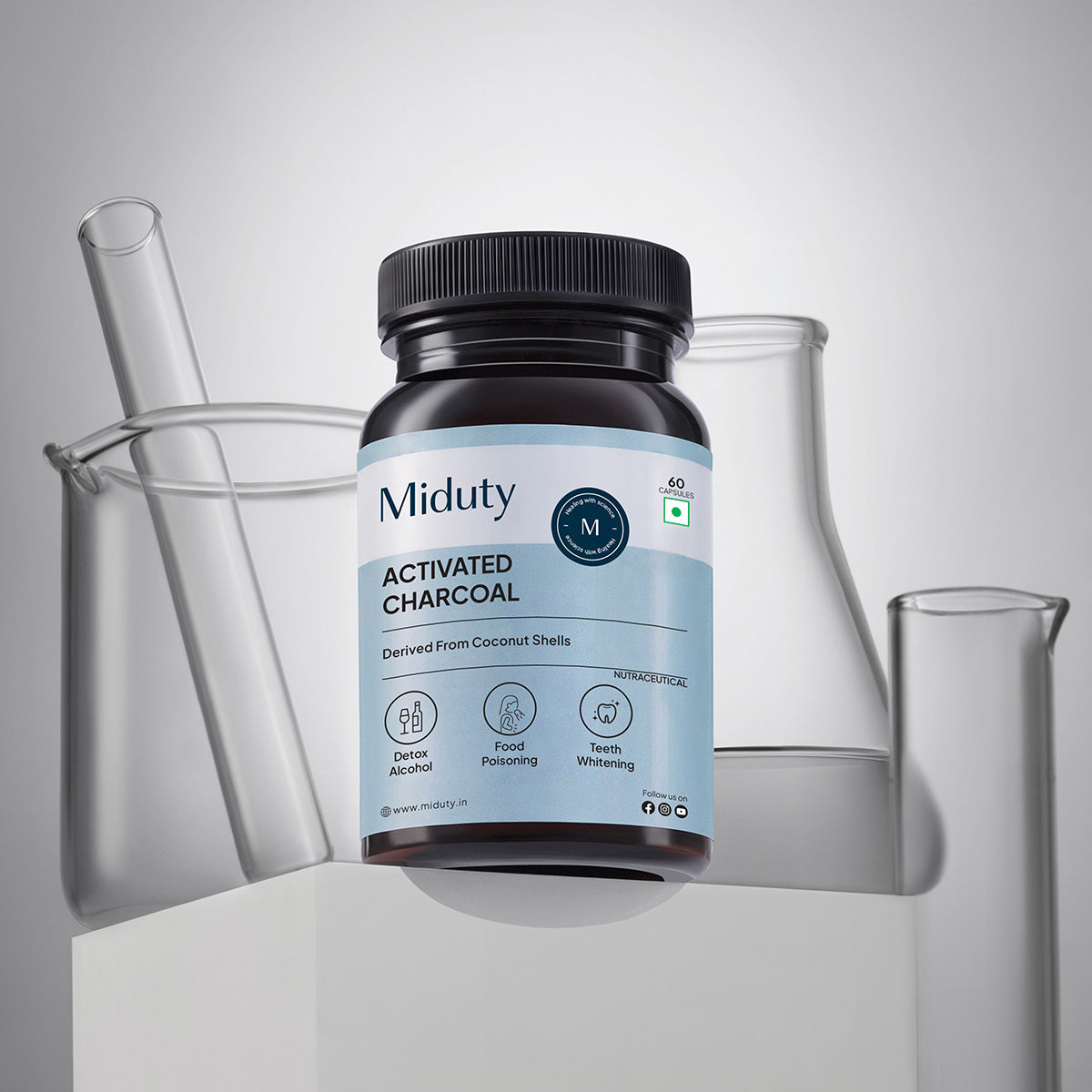
10 Natural Ways to Detox Your Lungs After Quitting Smoking
Quitting smoking is a major milestone toward better health, but it's not the final step. Your lungs have taken a beating, accumulating years of tar, toxins, and harmful chemicals. Detoxifying your lungs naturally helps accelerate the healing process, improve respiratory function, and reduce the risk of chronic diseases. But why is it so essential?
Each cigarette you smoke releases over 7,000 chemicals, including nicotine, carbon monoxide, tar, arsenic, formaldehyde, and benzene. These substances cause inflammation, paralyze the lung-clearing cilia, and create a sticky layer of tar in the lungs, reducing your ability to breathe. This cumulative damage reduces your lung capacity, blocks oxygen exchange, and makes you vulnerable to infections and diseases.
Key Takeaways:
1. Smoking Severely Damages the Lungs and Immune System: Smoking introduces over 7,000 harmful chemicals, including tar and carcinogens, which damage lung tissues, paralyze cilia, and increase the risk of lung cancer, COPD, and respiratory infections. Even secondhand smoke causes serious harm.
2. Detoxing After Quitting Smoking Is Essential: Quitting smoking is only the first step. Without active detox, residual tar and toxins remain in the lungs for months or even years, continuing to impair lung function and immunity.
3. Natural Detox Methods Can Accelerate Lung Healing: Simple habits like staying hydrated, doing deep breathing exercises, consuming antioxidant-rich foods, and using steam therapy can naturally support the lungs in clearing mucus, reducing inflammation, and restoring normal function.
4. Lung-Healing Herbs and Supplements Offer Additional Support: Herbs like mullein, thyme, and licorice root, along with supplements like N-Acetyl Cysteine (NAC), vitamin C, and omega-3s, can help thin mucus, repair lung tissue, and reduce oxidative damage.
5. Clean Air at Home Is Crucial for Recovery: Indoor air quality matters. Using air purifiers, ventilating regularly, and avoiding synthetic fragrances and pollutants can protect the lungs from further irritation during recovery.
Smoking is responsible for 85-90% of lung cancer cases, and nearly 80% of COPD (Chronic Obstructive Pulmonary Disease) diagnoses are directly linked to cigarette use.
Damage to your lung tissues begins within minutes of smoking a cigarette, and cilia; microscopic hair-like structures that keep your airways clear can take months or even years to regenerate after quitting. Smoking is the leading cause of COPD, a progressive lung disease that makes breathing difficult.
How Smoking Affects Your Lungs?
Smoking wreaks havoc on your respiratory system from the very first puff. Over time, this damage becomes extensive and, in many cases, permanent unless you intervene early and actively support recovery.
1. Inhalation of Toxic Substances
When you smoke, every puff floods your lungs with thousands of toxic and carcinogenic chemicals:
- Nicotine: Causes addiction, constricts blood vessels, and stresses the heart
- Carbon monoxide: Binds to hemoglobin more readily than oxygen, starving your body of essential oxygen
- Acrolein and formaldehyde: Cause cellular mutation and lung tissue breakdown
- Benzene and toluene: Suppress bone marrow function, leading to immune deficiencies
These chemicals trigger inflammation, destroys lung cells, and alters DNA, laying the foundation for cancer and chronic illness.
2. Tar Clogging Airways
Tar isn't just dirty, it's deadly. It deposits along the bronchial tubes and alveoli, physically blocking oxygen from entering the bloodstream and carbon dioxide from leaving. With repeated exposure:
- The lungs lose their elasticity
- Air gets trapped in the lungs (leading to conditions like emphysema)
- Breathing becomes shallow and inefficient
- Lungs begin to collapse at the microscopic level
Without active detox, tar buildup can take over a decade to fully break down.
3. Cilia Destruction Disrupts Self-Cleaning Mechanisms
Cilia are nature's janitors inside your lungs. They beat rhythmically to push out dust, microbes, and mucus. Smoking paralyzes and destroys these vital structures:
- Within one pack a day, cilia lose function within a week
- Their destruction leaves the lungs vulnerable to chronic infections
- This is why smokers often develop a "smoker's cough"a desperate attempt to clear what cilia can't
Only with detox can cilia regenerate faster, improving mucus clearance and immune response.
4. Chronic Inflammation and Scarring
The constant barrage of chemicals leads to persistent inflammation in the lungs. This results in:
- Thickening of airway linings
- Scar tissue formation
- Decreased airflow (a hallmark of COPD)
- Greater sensitivity to allergens and irritants
Once scar tissue forms, it's often irreversible. Detoxing helps halt further scarring and encourages the growth of new, healthy cells.
5. Increased Risk of Chronic Respiratory and Cardiovascular Diseases
Smoking doesn't just damage the lungs it stresses the entire cardiopulmonary system. You're at significantly higher risk for:
- Chronic Bronchitis
- Emphysema
- Lung Cancer
- Heart Disease
- Stroke
- Peripheral artery disease (PAD)
Even 5–10 cigarettes a day doubles your risk of heart attack and stroke. That's why post-smoking lung and body detox is critical as it reduces inflammation, balances circulation, and stabilizes your overall health.
Why Detoxing Your Lungs Is Crucial After Quitting Smoking?
Detoxifying the lungs after quitting smoking is essential for several reasons:
1. The Residual Toxins Don't Just Vanish
When you smoke, you inhale over 7,000 chemicals, including arsenic, formaldehyde, carbon monoxide, hydrogen cyanide, and ammonia. Around 70 of these are known carcinogens. These harmful substances settle deep in your lung tissues and bloodstream. Even after quitting, they linger for weeks, months, or even years if not actively flushed out.
Without detoxification:
- These toxins can continue damaging lung tissues
- Your immune response remains suppressed
- Inflammation in the lungs persists
- You stay at an elevated risk for cancer, infections, and chronic respiratory illness.
2. Tar Stays Behind and Suffocates Lung Tissues
Tar is a major byproduct of cigarette smoke. It's thick, sticky, and black and it coats the inner lining of your lungs. This not only disrupts oxygen flow but also impairs your lungs' ability to clean themselves. By inhaling tobacco smoke, the average smoker takes in 1–2 milligrams of nicotine per cigarette. Over a year, this can add up to 4–6 ounces of tar sitting in your lungs.
Without detox: Tar clogs alveoli (air sacs), Oxygen intake is reduced, Cilia microscopic hair-like cleaners can't function, Mucus builds up, creating a breeding ground for bacteria. A proper detox routine helps break down and eliminate tar, clearing the airways and restoring normal function.
3. Lung Function Doesn't Fully Return on Its Own
After quitting smoking, lung function can improve by up to 30% within three months. But many ex-smokers still deal with:
- Chronic cough
- Shortness of breath
- Frequent respiratory infections
- Fatigue due to low oxygen absorption
This is because the body needs help repairing the damage. Natural detox techniques such as steam therapy, hydration, antioxidant-rich foods, and breathing exercises can speed up this healing by:
- Reducing inflammation
- Boosting circulation in lung tissues
- Enhancing oxygen exchange
- Supporting tissue regeneration
4. Improves Your Immune System and Lowers Infection Risk
Smoking weakens your immune system by reducing the effectiveness of white blood cells, damaging the respiratory tract linings, and disrupting natural microbial balance in the lungs. This leaves you more prone to infections like pneumonia, bronchitis, and the flu. A post-smoking detox boosts immune cell activity, helps rebuild protective barriers, and enhances your lungs ability to fend off pathogens.
How Long does It Take for the Lungs to Recover from Smoking?
The timeline for lung recovery varies depending on the duration and intensity of smoking, but improvements begin shortly after quitting:
- Within 20 Minutes: Heart rate and blood pressure drop to normal levels.
- After 12 Hours: Carbon monoxide levels in the blood return to normal.
- 1 to 3 Months: Lung function improves by up to 30%, and cilia begin to regenerate.
- 6 Months: Coughing and shortness of breath decrease as lung function continues to improve.
- 1 Year: The risk of coronary heart disease is reduced by half.
- 5 to 10 Years: The risk of lung cancer decreases significantly, approaching that of a non-smoker.
10 Natural Ways to Detox Your Lungs After Quitting Smoking
1. Stay Hydrated – Flush Out Toxins
After quitting smoking, your body begins the arduous task of eliminating the toxins accumulated over time. Staying adequately hydrated aids this process by thinning the mucus in your lungs, making it easier to expel.
-
Warm Fluids: Drinking warm fluids like herbal teas can soothe the throat and help in mucus breakdown. Herbal teas such as green tea are rich in antioxidants, which combat inflammation and oxidative stress in the lungs.
- Honey and Lemon: A mixture of honey and lemon in warm water can act as a natural remedy to cleanse the lungs. Honey has antibacterial properties, while lemon is rich in vitamin C, supporting the immune system.
2. Practice Deep Breathing Exercises
Deep breathing exercises help in expanding the lungs, improving oxygen intake, and strengthening the respiratory muscles.
-
Pursed-Lip Breathing: This technique involves inhaling through the nose and exhaling slowly through pursed lips. It helps in controlling shortness of breath and promotes relaxation.
- Diaphragmatic Breathing: Also known as belly breathing, this exercise focuses on strengthening the diaphragm, leading to more efficient breathing.
Regular practice of these techniques can enhance lung capacity and aid in the expulsion of residual toxins.
3. Use Steam Therapy to Clear Airways
Steam therapy, or steam inhalation, involves inhaling water vapor to open the airways and help loosen mucus. This method can be particularly beneficial for individuals with respiratory conditions, as it may alleviate symptoms and improve breathing.
-
Essential Oils: Adding essential oils like eucalyptus or peppermint to the steam can enhance its effectiveness. These oils have anti-inflammatory properties and can provide additional relief.
- Frequency: Incorporating steam therapy into your routine a few times a week can support lung health and aid in detoxification.
4. Eat Lung-Cleansing Foods
Diet plays a significant role in lung health. Consuming foods rich in antioxidants and anti-inflammatory properties can aid in repairing lung tissue and reducing inflammation.
-
Antioxidant-Rich Foods: Berries, leafy greens, and nuts are high in antioxidants, which combat oxidative stress in the lungs.
-
Anti-Inflammatory Foods: Incorporating foods like ginger and turmeric into your diet can help reduce inflammation in the respiratory tract.
- Foods to Avoid: It's advisable to limit the intake of processed foods, sugary beverages, and excessive dairy, as they can increase mucus production and inflammation.
5. Get Regular Physical Activity
Engaging in regular physical activity is crucial for lung health. Exercise helps in improving lung capacity, enhancing circulation, and promoting respiratory function.
-
Cardiovascular Exercises: Activities like walking, jogging, and swimming can strengthen the lungs and heart, leading to better oxygen distribution.
- Breathing-Focused Workouts: Practices like yoga and tai chi emphasize controlled breathing, which can improve respiratory efficiency and reduce stress.
Incorporating these natural methods into your daily routine can significantly aid in detoxing your lungs after quitting smoking, leading to improved respiratory health and well-being.
6. Incorporate Lung-Healing Herbs and Supplements
Herbs have been used for centuries to support respiratory health. Certain plant-based remedies are especially powerful when it comes to cleansing the lungs and soothing inflammation post-smoking.
Top Herbs for Lung Detox:
- Mullein – A traditional herb known for clearing mucus and soothing inflamed tissues. You can find it in tea, tinctures, or capsules.
- Licorice Root – Contains compounds that reduce inflammation and relieve bronchial spasms. Be cautious with long-term use, especially if you have high blood pressure.
- Thyme – Has antimicrobial properties and helps fight chest congestion.
- Ginger and Turmeric – Both are potent anti-inflammatories. Turmeric's curcumin has been shown to reduce lung inflammation and fight oxidative stress.
Aside from herbs, certain supplements can speed up lung detox:
- Vitamin C: Boosts immunity and combats oxidative stress caused by smoking.
- N-Acetyl Cysteine (NAC): Helps thin mucus and regenerate lung tissue.
- Omega-3 fatty acids: Reduce inflammation throughout the body, including the lungs.
7. Use Air-Purifying Techniques at Home
Your indoor environment plays a significant role in lung recovery. After quitting smoking, your lungs are more sensitive to pollutants, dust, mold, and volatile organic compounds (VOCs). Cleaning the air in your home helps reduce exposure to secondary irritants. According to the World Health Organization, ambient air pollution causes about 4.2 million deaths per year.
Tips for Clean Indoor Air:
- Use HEPA air purifiers in bedrooms and living areas
- Ventilate regularly by opening windows and using exhaust fans
- Add air-purifying plants like spider plant, peace lily, or snake plant
- Wear a mask on high-pollution days or while cleaning dusty areas.
- Avoid artificial fragrances, aerosols, and incense, which can trigger respiratory irritation
8. Practice Postural Drainage and Chest Percussion
These physical techniques are often used in respiratory therapy and can be highly effective in removing mucus from the lungs.
- Postural Drainage involves lying in different positions to use gravity to drain mucus from the lungs.
- Chest Percussion is a gentle tapping on the chest and back to loosen mucus, which can then be coughed out more easily.
Practicing these techniques a few times a week can help clear stagnant mucus, which tends to accumulate after years of smoking.
9. Engage in Cold Exposure and Fresh Air
Spending time outdoors in clean, natural air helps expand your lungs and increase oxygen uptake. Cold exposure (like brisk walks in cooler weather) can stimulate deeper breathing and improve lung elasticity. While this practice isn't for everyone, mild cold exposure combined with deep breathing may encourage resilience in the respiratory system.
10. Avoid Secondhand Smoke and Environmental Pollutants
Even after quitting, exposure to secondhand smoke or environmental toxins can hinder your recovery.
What to Avoid:
- Secondhand smoke from cigarettes, cigars, or pipes
- Industrial areas or construction zones with heavy dust and particulates
- Scented candles and cleaning chemicals, which release lung-irritating VOCs
Conclusion
Quitting smoking is a monumental step towards better health, and supporting your lungs through natural detoxification methods can accelerate healing and improve quality of life. By incorporating practices like deep breathing exercises, regular physical activity, steam therapy, and a nutritious diet, you can aid your lungs in clearing toxins and regaining optimal function.
Remember, the journey to lung health is ongoing, and consistency in these practices will yield the best results. Celebrate your progress, stay committed to a smoke-free life, and embrace the natural methods that support your respiratory system.
FAQ's on Lungs Detox After Quitting Smoking -
Q1. How can I clean my lungs after quitting smoking fast?
To clean your lungs after quitting smoking, stay hydrated, exercise regularly, and eat antioxidant-rich foods like fruits and greens. Deep breathing exercises and steam inhalation can also help clear mucus and improve lung function naturally.
Q2. How to remove tar from lungs after smoking?
While you can't completely remove tar from the lungs instantly, you can support your lungs' natural cleansing process by staying hydrated, eating antioxidant-rich foods, doing breathing exercises, and engaging in regular physical activity. Over time, your lungs begin to heal and expel built-up tar and toxins naturally
Q3. How long does it take for lungs to recover after quitting smoking?
Lung recovery begins within days of quitting smoking after 2 weeks to 3 months, lung function improves noticeably. However, full recovery, including clearing mucus and repairing lung tissue, can take 1 to 9 months, while risk of lung diseases like cancer gradually decreases over several years.
Q4. Do lungs turn pink again after quitting smoking?
Yes, lungs can start to regain their pink color after quitting smoking, but this process takes time. Once smoking stops, the body begins clearing out mucus and toxins, and healthy lung tissue gradually regenerates. However, complete reversal depends on the extent of damage and how long a person smoked.
Q5. What to drink to clean lungs from smoking?
Drinking warm water, green tea, ginger tea, and lemon water can help support your lungs' natural detox and healing after quitting smoking. These drinks reduce inflammation, thin mucus, and boost immunity to aid lung recovery.
References


